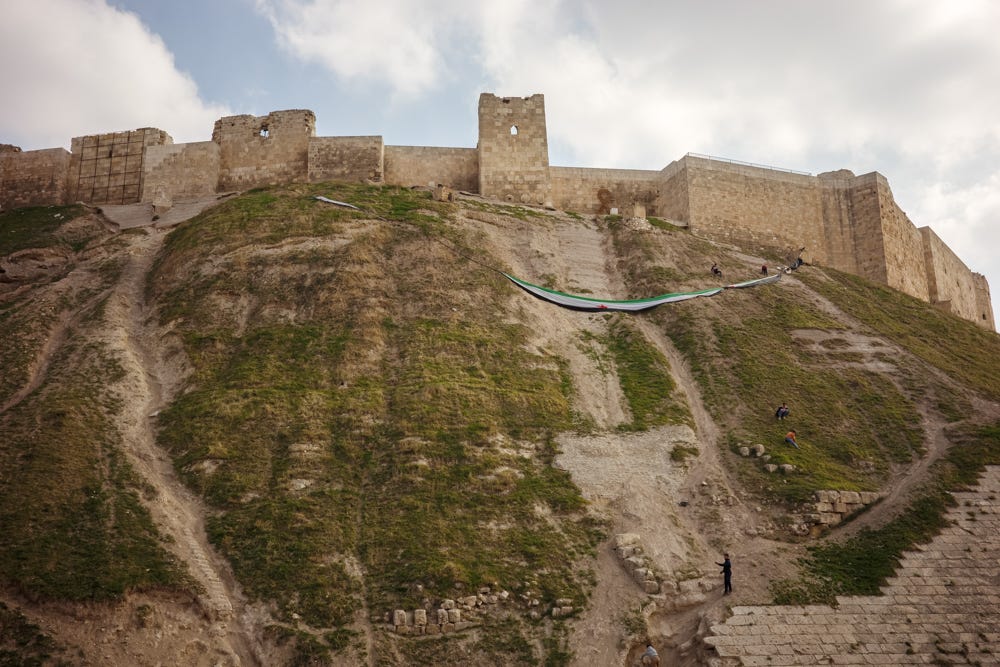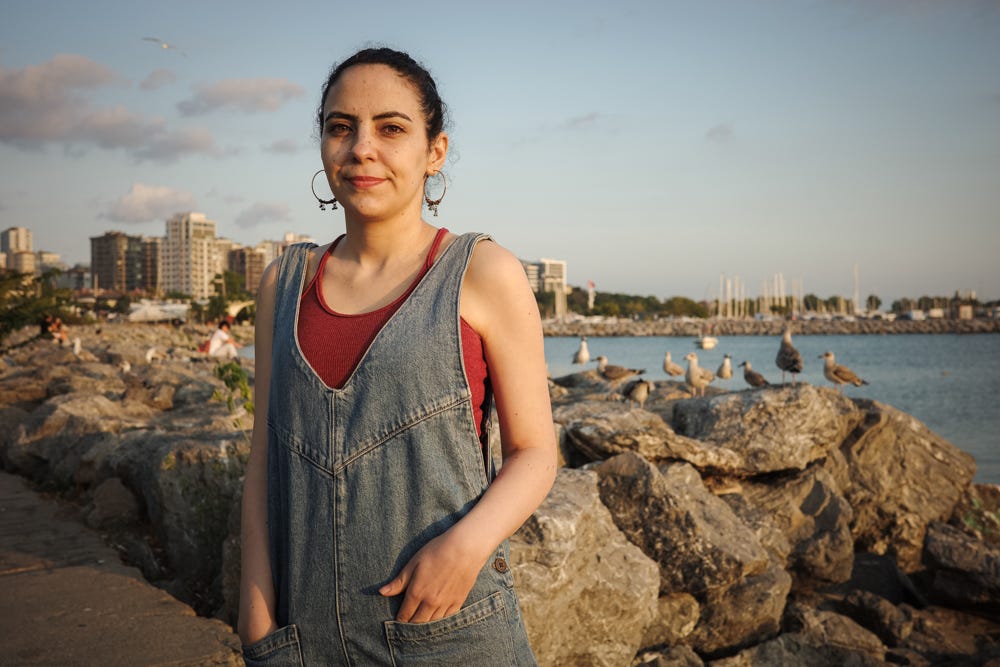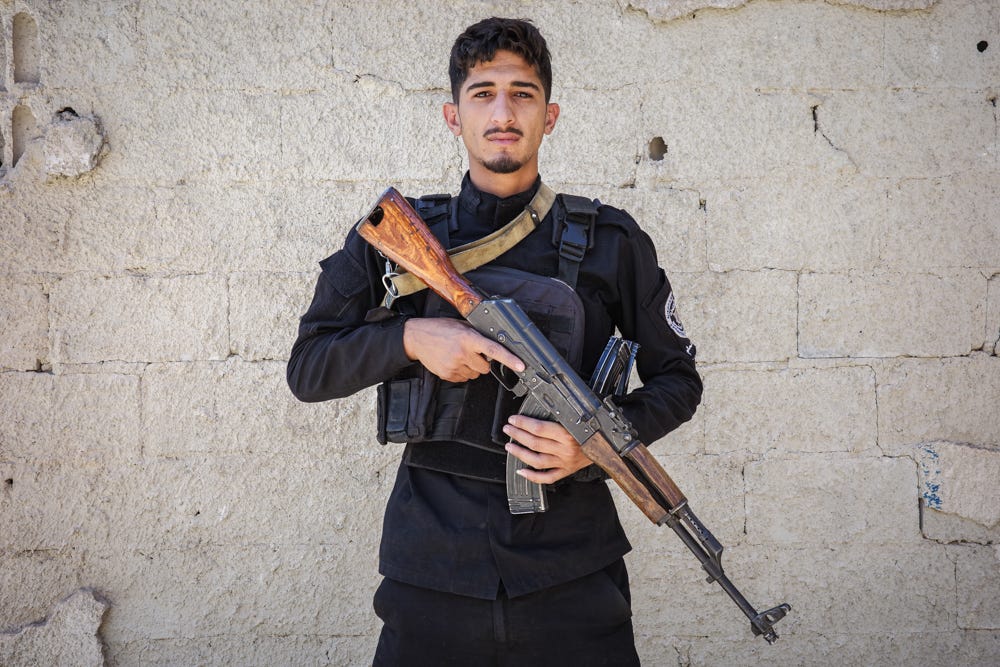
DAMASCUS — The midday sun blazes down on the ruins of Jobar on the outskirts of Damascus, where Zakaria walks through the wreckage, weapon over his shoulder. This neighborhood saw some of the heaviest fighting in Syria’s 14-year civil war. For miles, not a single building is left intact.
“I spent ten years living in Istanbul, in the Esenler district," Zakaria remembers. "I was only a kid when we left Syria."
He was one of the roughly 3.6 million Syrians who sought refuge in Turkey over the past decade. He, too, would learn that Turkish people were fed up with the number of Syrians in their country. The common refrain for Syrian young men was: "Why didn’t they stay and fight for their country?"
Zakaria did – or at least, he went back. Four years ago, tired of facing daily discrimination, poor economic prospects, and after an unsuccessful attempt to cross into Greece, he chose to return to the country he only remembered as a small child.
"Turkey was no good anymore. I went to Idlib and joined Hayat Tahrir al-Sham [HTS]. I fought with them in the countryside until the fall of the [Assad] regime."
Now, Zakaria serves in the new Syrian Army. Bashar al-Assad’s dictatorship came to a sudden and unexpected end on December 8, 2024. That day, Syrian refugees in their thousands filled the streets in Istanbul’s Fatih district to celebrate. Almost every single one said they wished to return.
In the following six months, at least 273,000 have returned from Turkey, according to Turkish Vice Pres. Cevdet Yılmaz. This makes up the bulk of the half-million Syrians who moved back during this period, and pro-government news reports suggest the pace of returns has increased in the summer months.
What is common among those returning is a deep emotional connection to their homeland. Despite the damage and the country's current state, the desire to live and breathe Syrian air was constantly emphasized.
‘Racism became very common’
"This is our land, this is where we belong," said Ahmad, who returned to Syria in late June. "Assad went to the bottom pit of hell, so we came back."
Yet, it will take years to rebuild his hometown, Aleppo, where the city center was extensively damaged during the war.
"Everything has changed so much," grumbles Ahmad as he accidentally speeds the wrong way down a one-way road.
It had only been five days since he moved back. At 18, he left Syria and started a new life in Bursa, where he ran a corner store. Now 32, he is trying to rebuild his family shop in Aleppo, which was destroyed in the conflict.
"Racism became very common [in Turkey]. The kids were getting bullied at school. You know what happened in Kayseri [on June 30, 2024]. My uncle was there. His car got trashed. After that, he moved back to Syria immediately after Assad went."
The events he was referring to were the wave of anti-refugee riots that spread across Turkey in July 2024. It started with rumors about a Syrian man sexually harassing a minor in the city of Kayseri. Angry mobs rampaged through the streets, attacking Syrians and their property.
Dozens were injured, hundreds were arrested, and at least one fatality was recorded. Though not all Syrians share the same perceptions or experiences.
"The racism wasn’t too bad," said Muhammad Rabia, a young textile shop owner in Aleppo’s bazaar. "I loved the people in Istanbul so much. I was sad to leave all my friends there. I was the first to come back in my family to fix our [bombed] house and open a shop here. Also, I wanted to be in the country I belong to. I love Turkey, but this is my homeland."
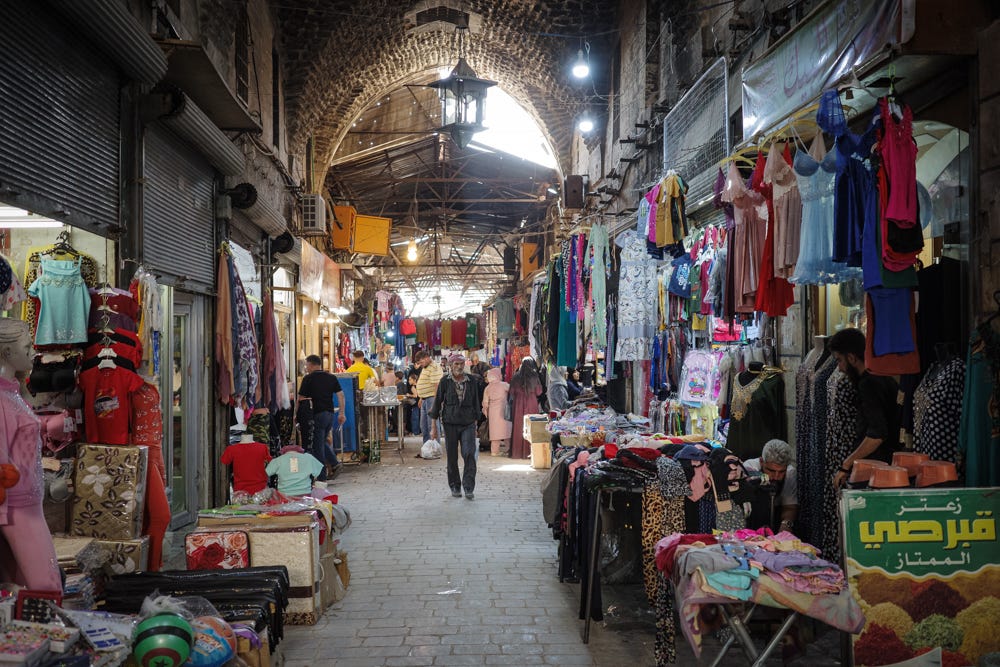
Economic factors
The other most-cited reason for leaving Turkey was the poor economic conditions. Refugees were among the worst hit by the cost-of-living crisis that started in 2018. Finding a decent job and an affordable apartment – where the landlord would accept Syrians – became a major challenge for most.
"The racism was bad, but the economy was even worse," Ahmad said. "No one can get by on minimum wage these days – it isn’t enough. And on top of that: price hike, price hike, price hike to our rent and produce, but hardly ever to our salaries. Here, at least, we own our houses and businesses."
"When Assad fled on December 8, it was like a dream," he continued. "We went to Turkey thinking we’d stay for two or three months. That became 14 years. That day, we all decided to move home. But my mother was ill, so I couldn’t come immediately. She eventually passed away last month. I buried her and packed up."
Syrians under temporary protection who decide to return to Syria for good are considered to have made a voluntary return. When they go through this process, their temporary protection status is canceled. Ahmad, however, was told he would be allowed to go back to Turkey for a week per year to visit his mother’s grave.
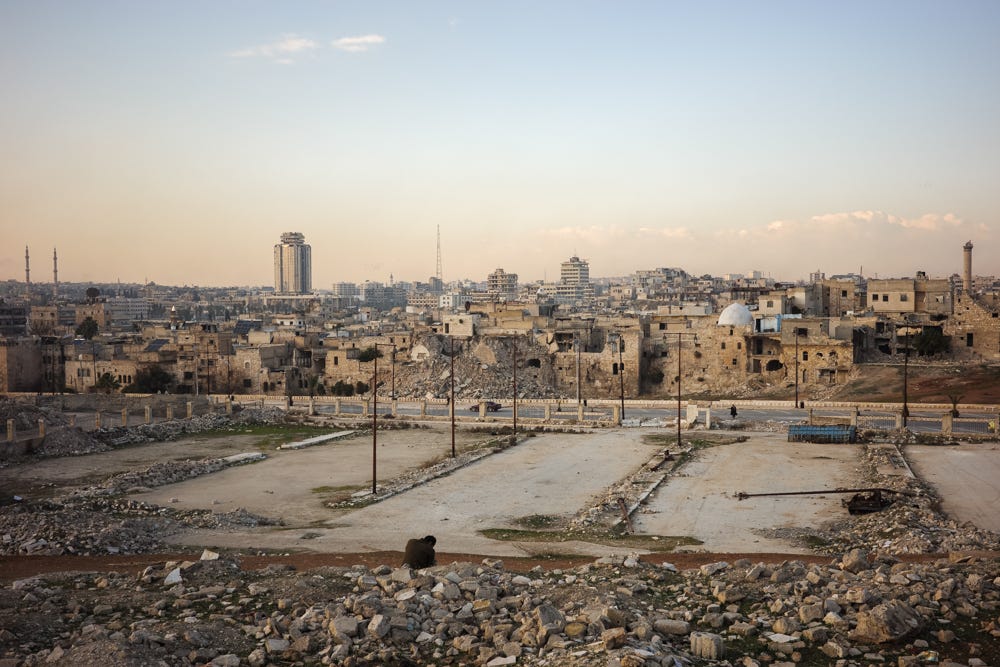
The country that awaits returning Syrians is very different from the one they left behind – and not just politically. Years of intense fighting left a mark on almost every part of the country. Except for the old town of Damascus and the odd small town or village, it is difficult to find a neighborhood not littered with bombed-out buildings.
The housing stock is dilapidated, and the infrastructure is in ruins. There was electricity for only a few hours each day in June. Most places had running water, but extended cuts were expected in August as drought conditions intensify.
"I expected issues with main services like transport and water," says Muhammad Rabia, back in his shop. "I thought I was prepared. But what I saw when I came back really shocked me. And the negative effects of war are reflected in Syrian society, too. People are impatient and easily angered. Divorces are up. Despite all this, we are all coming back – including some of my relatives from Germany. And we are also bringing back capital and knowledge."
Salaries are awfully low. Even with the recently announced 200 percent hike, the average salary of an engineer in public employment is below $100 a month. For context, the most basic electricity consumption of a family in Aleppo comes to around $50 in summer months.
Political instability in Syria
When asked about Syria’s new political leadership under Pres. Ahmed Al-Sharaa, Ahmad replied:
"I haven’t made up my mind yet … I’m mostly focused on the reconstruction [efforts]. Let them deliver on that, and then we’ll see. But I can say that their soldiers are gentlemen – not like the old filth."
Of course, not all Syrians in Turkey are in a rush to move back. Among them is Nour, a young woman working in journalism and civil society in Istanbul.
Unlike the others we interviewed, who were from the Arab Sunni Muslim majority, she is from the Druze minority. She has visited her homeland twice since Assad's fall but has decided not to move back for the time being.
"The first visit was interesting because, as Syrians, some part of our mind cannot imagine a square without an Assad picture in it," she reflects, sitting by the seaside in Istanbul.
"During that first visit, I saw the old reality meeting with the new. You could see both flags on the same building. They painted over one but forgot the other,” she continues. “Even crossing the border was a completely different experience – it was like kicking the door open and entering without permission."
Nour says she remains suspicious of the new Islamist government and the extremist groups being integrated into the security apparatus. From the outset, the new army was engulfed in a series of human rights abuses and other atrocities, often targeting minorities.
Her concerns were reinforced when sectarian violence reached its peak in March with the massacres of Alawites in the coastal region and in July with armed attacks on Druze groups in Sweida – Nour’s hometown.
"I do not trust the new authorities," she says. "All of us are threatened. You suddenly feel that you are a minority. You now feel that maybe your brother, when he is in a car or bus, because he is Druze, he will be killed without having a chance to say ‘Oh, I’m a communist’ or that ‘I lived in Damascus since 2006.’”
She adds: “We have these jokes among us: ‘It does not matter what you wrote on Facebook, because the person who will kill you will not read it.’"
Turkey recap is an independent, reader-supported newsletter that helps people make sense of the fast-paced Turkey news cycle. Contact us: info@turkeyrecap.com.
Subscribe here on Substack (or on Patreon for discount options). Paid subscribers get full access to our recaps, reports, members-only chat and news tracking tools.
Turkey recap is produced by our staff’s non-profit association, KMD. We are an affiliate of the Global Forum for Media Development and aim to create balanced news that strengthens local media by supporting journalists in Turkey.
Diego Cupolo, Editor-in-chief
Emily Rice Johnson, Deputy editor
Günsu Durak, Turkey recap Türkçe editor
Ceren Bayar, Parliament correspondent



